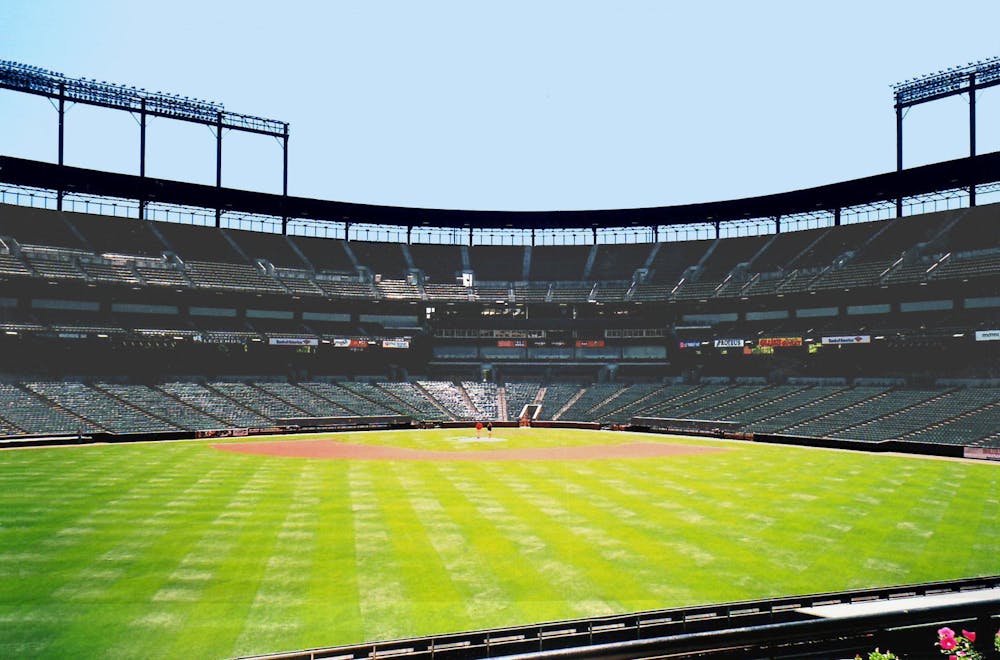
Major League Baseball (MLB) encountered its first major snag in its ambitious plan to restart the 2020 season, just three games in. Prior to their series finale against the Philadelphia Phillies on Sunday, July 26, the Miami Marlins had three players test positive for the coronavirus (COVID-19). In the face of this outbreak within the clubhouse, the Marlins had the opportunity to take a step back and decide to not play that Sunday against Philadelphia.
Apparently, not playing the game never crossed the minds of the players and the coaches. The team proceeded, full steam ahead, acting as if it was business as usual for their season. They faced the Phillies and beat them 11-6. According to The Athletic, not playing was never an option for the Marlins. Their manager Don Mattingly stated that the team “never really considered not playing” after receiving news of the positive tests. Shortstop Miguel Rojas echoed this statement, telling the media after the game that not playing was “never our mentality.”
At that moment, the MLB agreed and never saw reason to postpone Sunday’s game. However, the next day brought swift and expected repercussions for the MLB and Miami’s carelessness in handling the virus. According to a report from ESPN, the number of positive tests in the clubhouse rose to 13, infecting players and coaches alike. As an immediate precaution, the Marlins stayed in Philadelphia to reduce the effects of traveling, leading to a postponement of their Monday night game against the Baltimore Orioles.
Now, the total number of cases in the Marlins clubhouse has risen to 17 after the latest round of testing. Consequently, the MLB postponed all Miami games through Sunday.
The Marlins’ decision to play Sunday resulted in indirect consequences for several teams. The Phillies matchup on Monday against the New York Yankees was postponed as well. The Phillies were exposed to potentially infected Marlins players during their series over the weekend, without any of them knowing at the time. The Marlins inhabited the visiting clubhouse at Citizens Bank Park, where the Yankees were scheduled to be for their series against the Phillies. The Orioles, who likely already traveled to Miami after their opening series in Boston, are now waiting to hear if their two-game set against the Marlins will even occur.
This occurrence was MLB’s biggest fear as it began its quest to bring baseball back to America. An outbreak in a team’s clubhouse is the very first domino to fall toward the big red button that cancels the season. It’s even more frightening for the future of the season because the League’s protocols are designed to prevent this very occurrence. MLB administers saliva tests to Tier One individuals — players, coaches and managers — every other day in the name of proactiveness. There is constant sanitizing of bats and balls, social distancing in dugouts and recommended mask usage. Some teams also decide to use rapid-result, antigen tests, in addition, to get more information for their players.
However, there are holes in the protocols that counteract MLB’s efforts to keep their season going. The Marlins decided to not even acknowledge the slew of positive tests on Sunday before their game. The team did not make any roster moves to place those infected players on the injured list to quarantine them and keep everyone safe. For some reason, they did not view it as a large threat to their health. Maybe the small number of positives placated their fears. But that is the issue. Three to four players is a precursor to a major outbreak, simply because that number of infected will never remain that low.
It’s quite possible that a number of the players and coaches were asymptomatic and unaware that they were infected with the virus. There is a lag in testing that can allow players and coaches to believe they are safe before they find out they tested positive. This immediately exposes too many people to the virus than the MLB prepared for — from opposing teams, hotel workers and clubhouse attendants. And now, their season is in jeopardy.
Despite all of the League’s efforts to create an environment that can handle the stressors of the pandemic, their plan was likely to fail from the very beginning. Yes, there have already been promising professional sports restarts so far.
The National Women’s Soccer League was the first American sports league to restart and completed its Challenge Cup with very few snags. The teams were isolated in a bubble environment in Utah, tested its players early and often to catch potential outbreaks. The National Basketball Association, which is attempting its own bubble situation in Orlando, Fla., announced zero positive tests on July 21 after having players there for more than a week. With proactive measures in the bubble and intense social norms to increase player responsibility, these leagues have seen success.
The MLB considered having multiple bubble areas in Arizona and Florida for their restart; however, many players were against it from the start, refusing to be isolated from their families, which is understandable. So the League designed a system based on geographic location, with teams playing within their division and against the corresponding division in the other league — the Orioles would play against the American League and National League East. This plan seemed logical but still involves state to state travel in order to play at home stadiums across the country. Teams have to travel on buses and planes, staying in hotels in different states with varying protocols on public safety.
The current MLB plan is fully based on personal responsibility at this point. It asks players and coaches to complete the impossible task of maintaining social distance rules while traveling from Florida to New York. The League is also placing its future in the hands of a culture of players who are taught to play through pain. There’s a sense of pride amongst baseball players, who grew up with phrases like “rub some dirt on it” and “walk it off.” You’re asking players to always sit out a game due to a potential sore throat.
There are too many factors to control for MLB in the middle of the country with the worst COVID-19 response in the entire world. And now, they are at a crossroads as the Marlins deal with the type of outbreak they feared most. The decision is either to shut down their season for the time being or attempt to survive and advance. It remains to be seen whether or not stubbornness will prevail.





